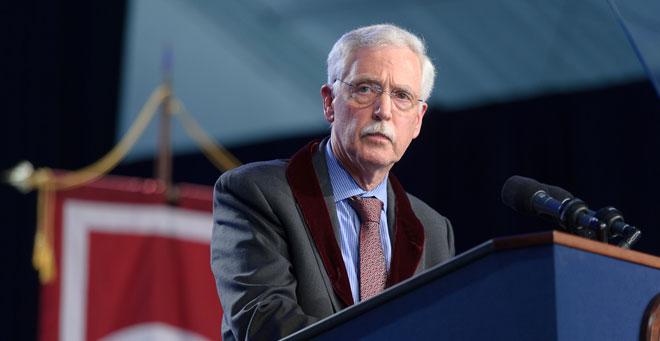 |
|
| Robert H. Brown Jr. speaking at the UMMS 2012 Investiture Ceremony |
In an interview with the Boston Globe, internationally recognized amyotrophic lateral sclerosis (ALS) researcher Robert H. Brown Jr., DPhil, MD, said he believes a breakthrough is within reach and explained his motivation in working to find it.
“I have this vision that when I die and I go to wherever you go when you die, I’m going to be looking in the face of my ALS patients just exactly like I’m looking at your face right now,’’ Dr. Brown told the Globe columnist Thomas Farragher. “The question they’ll have for me is: What have you done?’’
Brown is the Leo P. and Theresa M. LaChance Chair in Medical Research, and chair and professor of neurology. ALS is a progressive, neurodegenerative disorder affecting the motor neurons in the central nervous system. The cause of most cases of ALS is not known. Approximately 10 percent of cases are inherited. Though investigators at UMMS and elsewhere have identified several genes shown to cause inherited or familial ALS, almost 50 percent of these cases have an unknown genetic cause. There are no significant treatments for the disease.
Brown’s lab is working to develop a therapy to silence genes that promote the ALS.
“I am completely confident that the technology is out there that will turn off these ALS genes,’’ Brown said in the Globe. “We’re working aggressively. The human trials have started. It’s an inch here, a millimeter there.’’
Related stories on UMassMedNow:
Research shows ALS may be treatable using neural stem cells
Discovery points to new pathways, potential treatment for ALS
FDA approves Phase II clinical trial for ALS at UMMS